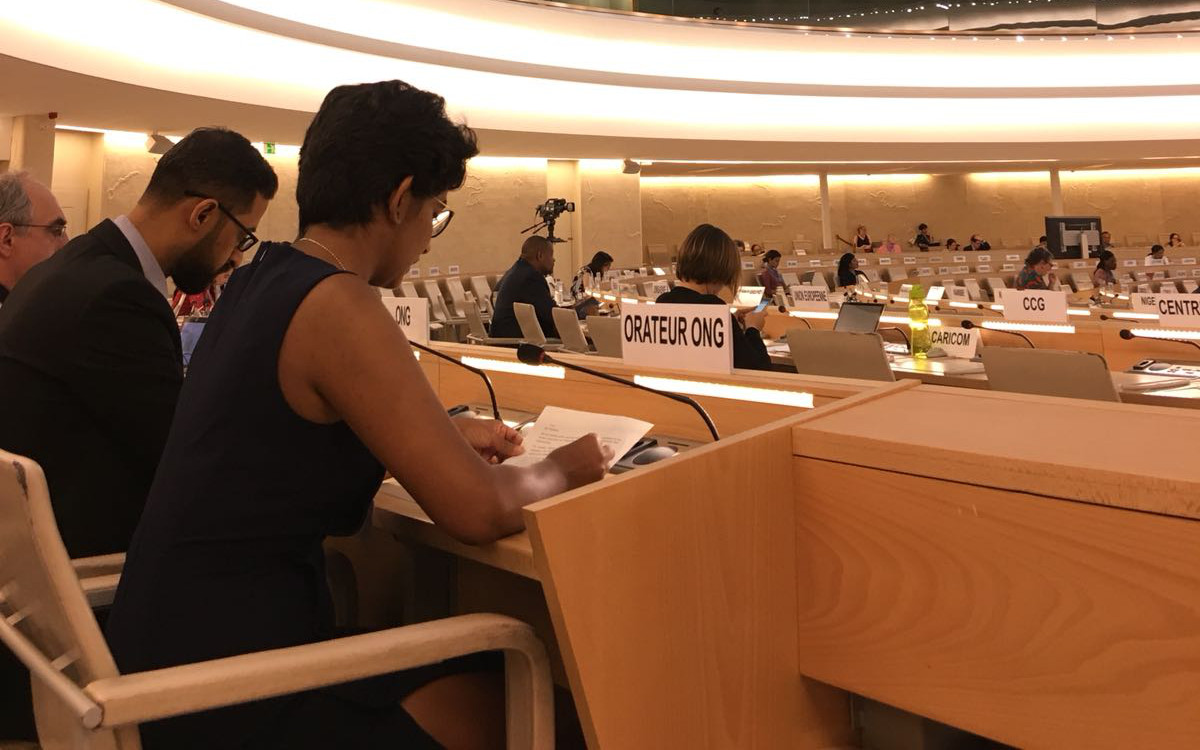On Tuesday 3 July 2018, during the Item 9 General Debate on the Durban Declaration and Programme of Action at the 38th session of the United Nations Human Rights Council, ADHRB delivered an oral intervention criticizing Bahrain’s targeting of Shia clerics and religious scholars. ADHRB notes that in 2017, the Bahraini government harassed, interrogated, arrested, or prosecuted over 70 clerics, in a widespread campaign of suppression. Click here for a PDF or continue reading for the full text of the interventions.
Mr. President,
ADHRB remains concerned over some States’ continued disrespect for the Durban Declaration and Programme of Action’s call to protect individuals from discrimination.
For example, Bahrain systematically discriminates against its majority Shia population. This discrimination resounds in nearly every facet of public life ranging across religious, social, political, and cultural rights.
The government has moved to suppress Shia religious, social, and cultural symbols and figures by targeting Shia clerics and arresting, detaining, and sometimes deporting them. For years the government has systematically targeted Shia clerics, but in 2017, the government harassed, interrogated, arrested, or prosecuted over 70 clerics.
Religious scholars Sheikh Mohammed al-Miqdad, Sheikh Abduljalil al-Miqdad, and Sheikh Saeed al-Noori are among the prominent prisoners known as the Bahrain 13. They were arrested in 2011 and 2012 for their peaceful activism and sentenced to life in prison. Many other clerics have been sentenced to prison for their activism and outspoken criticism of the government, including Sheikh Mirza al-Mahroos, Sheikh Abdulhadi al-Mukhodher, and Sayed Majeed Meshaal. Still others, including Sheikh Hasan al-Najati have been deported, and Sheikh Isa Qassim, the most prominent Shia leader in Bahrain, was arbitrarily denaturalized.
We therefore call on all states, particularly Bahrain, to uphold its commitments to the DDPA and to halt the prosecution of members of the Shia community, and to stand accountable for violating international norms and standards relating non-discrimination and the freedom of religion.
Thank you.





